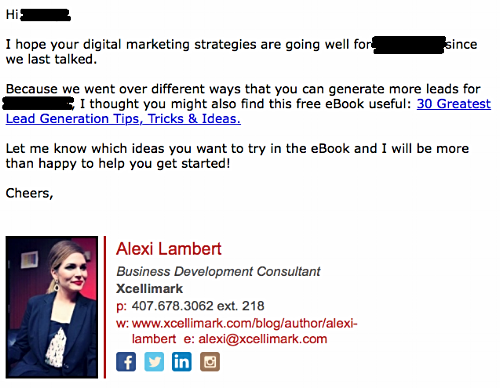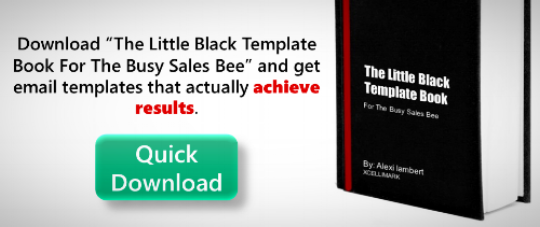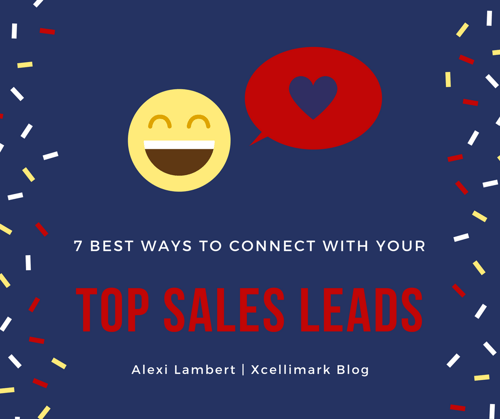Caution! This Is The Fine Line That Will Make Or Break Your Sales

 This is where it gets real.
This is where it gets real.
You've connected with your sales prospects and survived the first phone call, email conversation or social media interaction. Despite possibly embarrassing yourself, they are actually going to talk to you again since you set up the follow-up exploratory meeting.
In the dating world, this would be considered the second date. You've peaked their interest enough that they want to hear more about you, but this is when the real questions, wants and needs hit the fan.
If you're a father with a daughter (in my father's case 3 daughters), this is when you're sitting there in the living room with the new "boyfriend." You may or may not have a shotgun across your lap, depending on the intimidation tactics you like to use, but you've got a whole reel of questions in your head ready to throw at this guy to qualify (or disqualify) him to be worthy enough to date your daughter.
In a job interview, this is the big moment when you're answering numerous questions on more topics than you cared to answer in order to qualify for a job.
In a Presidential election, this is the point when a candidate is being interviewed on all relevant topics to prove they qualify for the big chair in the White House.
I think you get the point. I don't mean that this specific exploratory conversation should be just as intimidating, but depending on how you conduct it, it may turn out to feel this way for your sales prospect.
This is the make or break conversation for both sides. Both sides should ask questions, but you're the one mainly asking and they are the one mainly answering and explaining.
There is a fine line between interrogating and exploring your sales prospect's pain points, goals, needs, priorities, strategies, budget, timing and more.
On the interrogation side of that fine line, your prospect will most likely feel intimidated. They will see you as the father with the shotgun on his lap.
On the exploration side of that fine line, your prospect will most likely feel like they are connecting with you and getting to know you on a deeper level.
Aspire To Inquire
Alright, so I'll admit it. You're about to see a whole bunch of questions to ask your prospects and you might be thinking, "How the heck do you expect me not to come across as an Interrogator, Lexi?"
I hear you. But remember this is not supposed to be black and white and by the book. It's not a "You must say this first, then they must respond this way, then you must respond with this question, and so on."
Instead, it's rapport building, reiterating what you covered in your last conversation, stating the goals for this conversation you're about to have, more rapport, asking your first question related to a topic you just stated, listening, then...
Well that's the thing about this not being an interrogation. You play it by ear on what you just heard them say.
I'm not saying to not have an agenda or a list of questions and to be prepared for the conversation. I am just saying to absolutely, whatever you do, do not forget to listen.
Because your list of questions after that will be based upon what you hear. Not what you had planned by the book.
Keep in mind that at this point, the buyer most likely wants to connect with you. In fact, 60% of buyers are interested in talking to a salesperson after they have done their research and have shortlisted companies that they want to consider buying from.[1]
And trust me, after your connection conversation with them, they have most likely done a great deal of research into the whole matter.
Why This Is So Important
Qualification.
The questions you ask and dig deeper into with your sales prospect will lead you down the path of knowing even more accurately how qualified they are as a sales lead and a customer.
This is key to sales productivity and separating yourself from the stereotypical "sleazy" and "pushy" sales person.
Only 3% of buyers trust salespeople. Therefore, it is critical to your success for you to not be what the other 97% of buyers assume you to be as a salesperson.[2]
How exactly does this make you more productive and less sleazy?
Because at the end of this exploratory conversation, you will either break up with your prospect because they are not a good fit, or you will schedule the next step in your sales pipeline, whether it's a product demo or sales proposal.
How to Break Up With Your Prospect
If breaking up was so easy, then there wouldn't be so many sad loves songs. Don't worry, this is not supposed to be emotional or heart breaking. You definitely need to keep a connection with your prospect and still be in contact with them from time to time.
And always bail on a great note.
Some options for moving on are:
- Give them helpful resources and advice for solving their problem. Tell them to always come back for help in any way. Over time, continuously send them content and resources on the topics they care about.
- Give them a referral to someone who might be a better fit for them. You can also ask for a referral down the road for anyone they know that could use your product or service.
- Give them homework that takes longer and requires more effort that will actually help them gain greater results. This solution is for the times when they are a good fit but the timing or budget is off right now. By helping them in their growth efforts, you can reengage with them after they are in a better place to do business with you.
Here's an example of nurturing a prospect post-break up:

Notice that I provided helpful resources on the topics we discussed in our exploratory conversation, I checked in to keep a nurtured relationship going because I do actually care, and I offered to meet with them in case they still need help with anything.
In this case, bailing does not mean it's the end. It just means that you focus your efforts, time and energy on other sales prospects that are more qualified to buy.
Cue Your Inner Indiana Jones
Your main goal in your exploratory conversation is to uncover your prospect's deep-seated goals. This is supported by the development of trust, credibility, rapport and objection handling.
There are many topics and categories that can be used to uncover your prospect's main goals. You may have scratched the surface in your connection call and are already set up to jump right into talking further about it.
Either way, here are the categories and topics you should consider discussing:
Goals
- What are the main drivers your team needs to accomplish this year?
- How often are you tracking your progress against them?
- Where do you want to be by X amount of time?
Plan
- What have you been doing so far to accomplish XYZ goal?
- In your opinion, how successful has this been?
- Have you considered doing XYZ to accomplish this goal?
Challenges
- What do you see getting in the way of you achieving XYZ goal?
- What's your strategy to address these challenges?
- What do you already have in place currently to address this issue?
Time
- How much time do you have to make XYZ happen?
- How fast do you need to see results?
- At what point will you know if your plan is working or not working?
Budget
- Do you have a budget?
- How are you currently spending your budget to achieve XYZ goal?
- Have you seen an ROI on it yet?
Authority
- Tell me more about your role in the company.
- What is your typical process for making a decision on XYZ product or service?
- Is there anyone else you need to include in our conversations?
Need
- How much of a priority is this for you right now?
- What will happen if XYZ goal doesn't happen?
- If you keep doing what you're doing now, do you think you will still meet your goals?
The Company
- Who is your target market? How do you currently reach them right now?
- Who are your competitors?
- What makes you different from your competitors?
If at any point you are stuck and they give you a short answer, or you just really want to know more about what they just said, simply repeat these words: "Tell me more about that..."
Pain or Gain? That Is The Question.
This whole exploratory conversation will go down one of two ways: driven by pain or driven by gain.
In other words, driven by goals, achievements, excitements and open doors. Or, driven by challenges, fears, anxieties and failures.
Either way, your prospect's decisions will be based upon pain or gain. They will make their decisions based upon a need or based upon a desire. Therefore, you must listen carefully to the way they explain their answers to your questions early on in the conversation in order to know which road to go down for the rest of the questions to ask.
If you identify quickly what motivates your prospect to buy, then you will be able to influence them and build an urgency to make a decision. You do this by walking them through the categories listed above, and by taking the time to learn what failure looks like to them and what success looks like to them.
Only then will you be able to completely tailor this exploratory conversation to their wants and needs and be able to accurately determine whether this is a good fit or a bad fit.
Let me put this concept together for you in one of the best sales and marketing ideas I have seen yet:
The Working Woman Example
When I was in the Navy stationed in San Diego, I came across a downtown spa named "Girl on the Go!" They had me at "open until 10 PM." As so many other professionals can relate, many spas are not open by the time you get home from work and can catch your breath.
This spa is specifically targeted towards working professionals, offering services from nails to massages to facials and more.
But I didn't need all of that. I just needed my nails done quickly for a rare special event and Girl on the Go! was there for me.
Dana, the owner and a stranger to me at that time, took me in with open arms and handed me a glass of wine and anything else I needed.
I was sold.
It wasn't until I returned a couple of more times, and connected with Dana over a few more conversations, that she uncovered some of my other wants and needs: one specifically having to do with my skin.
I had struggled with skin issues for a long time and after her long exploratory conversation with me, while simultaneously paying close attention to what I was saying and my emotional drivers, I gave her a chance. I had already started to trust her and she got me to see value in the way she did things.
Next thing I know, I'm having an hour facial with Dana and during this time we connected further on life, goals, wants, needs, work, relationships, and more. She built a rapport and connection with me which led to my return for another facial. And another one.
Soon, I trusted Dana with more than just her spa services. She was my friend, esthetician and trusted adviser. Not only was I going to her for most of the services at her spa, but I was referring everyone I knew to her as well.
Dana, while selling her spa services, was also genuine and a good listener. She went the extra mile to help with certain challenges of mine. She would add personal touches by sending me a text about a topic we had discussed the previous week.
She was human first and a salesperson second.
Now, I am in Orlando, FL and we still keep in touch. That is what building genuine rapport and connections looks like. It's how to create relationships instead of just sales, and how to gain returning customers.
Through this type of rapport and relationship building, you don't just get one customer out of it. You get one - plus everyone else they sing your praises to.
And who knows?
You may just get a great friendship out of it too.








